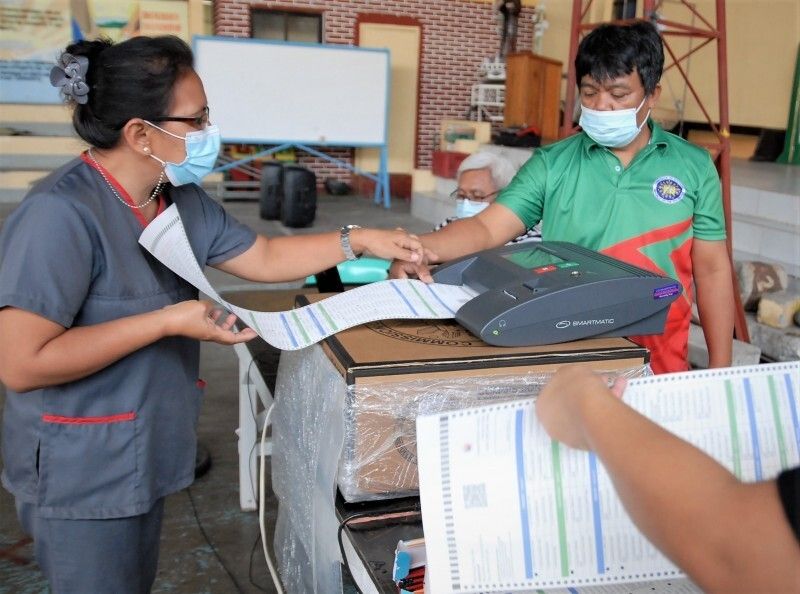Freedom House: 'Limited gains' for democracy in Asia Pacific in 2022

MANILA, Philippines — Elections — including those in the Philippines — and gains by pro-democracy movements were bright spots in the Asia Pacific, where democracy movements continue to contend with authoritarian tendencies, Washington-based monitor Freedom House said in its annual report.
According to the Freedom in the World Report 2023, global freedom has continued its 17-year decline because of wars and coups, and attempts by governments across the world to diminish basic liberties like freedom of expression and dissent. Freedom House noted, however, that while democratization has stalled in parts of the world, "ordinary people...continue to defend their rights against authoritarian encroachment."
In the Asia Pacific region, where 95% of the population lives in countries that Freedom House considers "partly free" or "not free," a number of countries have "overcome decades of dictatorship to establish resilient democracies."
Freedom House noted that "in Myanmar, broad-based resistance to the military junta that ousted elected leaders in 2021 kept the regime from consolidating control over the country or gaining international legitimacy" while courts in Malaysia showed juidicial independence by upholding the conviction of former prime minister Najib Razak for corruption.
Also included as examples of progress in the region were the holding of elections in Malaysia and the Philippines, the rollback of COVID-19 restrictions, and the ouster of members of the Rajapaksa political family in Sri Lanka.
"[W]hile the son of a former dictator won the presidency, the competitive campaign had the effect of mobilizing millions of young voters," Freedom House also noted, referring to the popular President Ferdinand "Bongbong" Marcos Jr.'s massive win in last May.
READ: 'Election denialism' stalks US midterm polls, puts democracies abroad at risk
The Philippines, which Freedom House considers "partly free", had a score of 58/100 in the annual report, up from 55/100 in the previous year. It scored 25/40 in Political Rights and 33/60 in Civil Liberties.
Rights groups in the Philippines have said that the new administration has retained policies from the Duterte administration. During the election campaign, Marcos said the government's "war on drugs" would continue but would focus on rehabilitation and on keeping people from trying narcotics in the first place.
"Enforcement, we have seen can only take you so far," Marcos said in October 2021. Anti-narcotics operations have continued but the administration has also directed top Philippine National Police officials to undergo a review for suspected links to the drug trade.
'Freedoms still under attack'
"Despite these limited gains, the freedoms of expression, belief, and association came under attack in other settings from across the democratic spectrum," Freedom House also wrote.
In the Philippines, the government's anti-communist task force continues to equate activism and human rights work with rebellion and terrorism. It raised opposition this week to a House bill seeking protections for human rights defenders, saying passage would weaken the country's anti-terrorism laws.
READ: Groups score NTF-ELCAC for equating human rights work with terrorism
Mentioned as attacks on rights and democracy in the Freedom House report were "greater financial and editorial control over the public broadcaster and [threats] to prevent critical foreign journalists from entering" the Solomon Islands and a "broader" crackdown on dissent and on religious freedom in Hong Kong.
"The Communist Party regime in China remained one of the world’s worst abusers of political rights and civil liberties, and those who criticized the party received severe penalties," the Washington-based rights and democracy monitor said.
It also noted protests against anti-COVID measures "in a rare nationwide display of dissent that resulted in the abrupt abandonment of many restrictions."
In its executive summary, Freedom House said 2022 may have been a turning point for global democracy, with the decline in civil and political rights showing signs of slowing.
"It has become more difficult to consolidate nascent democratic institutions in recent decades. More and more countries have remained Partly Free instead of moving toward full democratization. Still, the world is significantly freer today than it was 50 years ago," it said.
It also warned however, that: "Democratic societies’ international solidarity, commitment to shared values, and continued support for human rights defenders are crucial to ensuring that the next 50 years bring the world closer to a state of freedom for all."
- Latest
- Trending






























